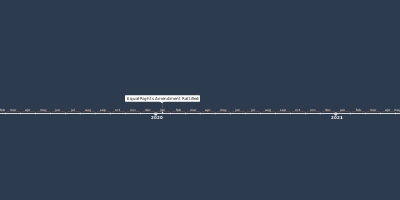25 janv. 1968 - Shirley Chisholm candidacy
Description:
Chisholm began exploring her candidacy in July 1971, and formally announced her presidential bid on January 25, 1972, in a Baptist church in her district in Brooklyn. There she called for a "bloodless revolution" at the forthcoming Democratic nomination convention. Chisholm became the first black major-party candidate to run for President of the United States, in the 1972 U.S. presidential election, making her also the first woman ever to run for the Democratic Party's presidential nomination (U.S. Senator Margaret Chase Smith had previously run for the Republican presidential nomination in 1964). She was also the first woman to appear in a United States presidential debate. In her Presidential announcement, Chisholm describes herself as representative of the people and offered a new articulation of American identity: "I am not the candidate of black America, although I am black and proud. I am not the candidate of the women's movement of this country, although I am a woman and equally proud of that. I am the candidate of the people and my presence before you symbolizes a new era in American political history."Her campaign was underfunded, only spending $300,000 in total. She also struggled to be regarded as a serious candidate instead of as a symbolic political figure; she was ignored by much of the Democratic political establishment and received little support from her black male colleagues. She later said, "When I ran for the Congress, when I ran for president, I met more discrimination as a woman than for being black. Men are men." In particular, she expressed frustration about the "black matriarch thing", saying, "They think I am trying to take power from them. The black man must step forward, but that doesn't mean the black woman must step back." Her husband, however, was fully supportive of her candidacy and said, "I have no hangups about a woman running for president." Security was also a concern, as during the campaign three confirmed threats were made against her life; Conrad Chisholm served as her bodyguard until U.S. Secret Service protection was given to her in May 1972.
Ajouté au bande de temps:
Date:
25 janv. 1968
Maintenaint
~ Il y a 57 ans
